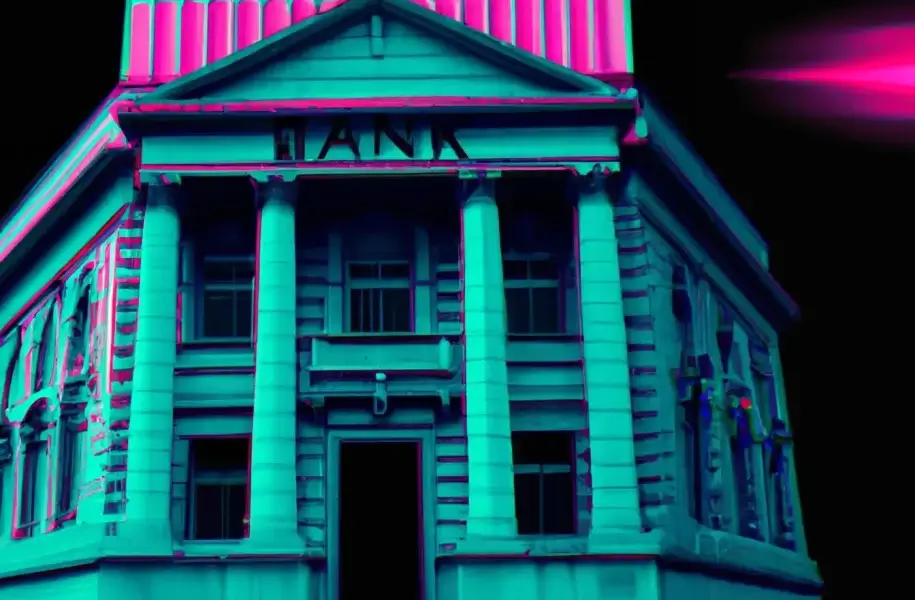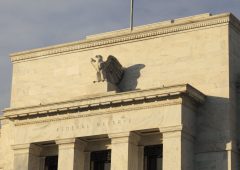U.S. Banks Exposed to Potential Financial Crisis, Report Finds
18.08.2024 14:00 2 min. read Alexander Stefanov
A new report reveals that 94 U.S. banks are at high risk of facing bank runs from uninsured depositors if they show signs of financial instability.
Research from Florida Atlantic University highlights that these banks, including seven major financial institutions, have an uninsured deposit ratio of 50% or more compared to their total deposits.
The study’s index on liquidity risk from uninsured deposits indicates that BNY Mellon leads with a 100% uninsured deposit ratio, followed by State Street Bank at 92.6%, Northern Trust at 73.9%, Citibank at 72.5%, HSBC Bank at 69.8%, JP Morgan Chase at 51.7%, and U.S. Bank at 50.4%.
Finance professor Rebel A. Cole from Florida Atlantic University explains that these banks are particularly exposed to liquidity issues because uninsured depositors tend to withdraw their funds quickly if they sense any instability.
The recent collapse of Republic First Bank in Pennsylvania, which was at number 87 on the previous quarter’s list with a 51.5% uninsured deposit ratio, underscores this vulnerability. Cole notes that all banks listed are at significant risk of experiencing runs if they encounter any financial weaknesses related to commercial real estate or unrealized securities losses.
While FDIC-insured accounts are protected up to $250,000 in case of bank failure, regulatory bodies like the FDIC, Federal Reserve, and Treasury Department used systemic risk measures to cover all deposits in last year’s notable bank failures, including Silicon Valley Bank, Signature Bank, and First Republic Bank. For Republic First Bank’s failure this year, the FDIC swiftly facilitated Fulton Bank to take over all deposits.
-
1
Gold Beats U.S. Stock Market Over 25 Years, Even With Dividends Included
13.07.2025 15:00 1 min. read -
2
US Inflation Heats Up in June, Fueling Uncertainty Around Fed Cuts
15.07.2025 16:15 2 min. read -
3
U.S. Announces Sweeping New Tariffs on 30+ Countries
12.07.2025 16:30 2 min. read -
4
Robert Kiyosaki Predicts When The Price of Silver Will Explode
28.06.2025 16:30 2 min. read -
5
Key U.S. Economic Events to Watch Next Week
06.07.2025 19:00 2 min. read
4 Key Developments That Could Shake the Crypto Market This Week
The final week of July is shaping up to be a pivotal one for global markets, with multiple high-impact U.S. economic events lined up that could trigger volatility across stocks, bonds, and crypto assets.
Why Most Americans Still Avoid Crypto Despite Growing Adoption
Cryptocurrency ownership in the U.S. has grown steadily over the past few years, but it remains far from widespread.
Two Upcoming Decisions Could Shake Crypto Markets This Week
The final days of July could bring critical developments that reshape investor sentiment and influence the next leg of the crypto market’s trend.
Winklevoss Slams JPMorgan for Blocking Gemini’s Banking Access
Tyler Winklevoss, co-founder of crypto exchange Gemini, has accused JPMorgan of retaliating against the platform by freezing its effort to restore banking services.
-
1
Gold Beats U.S. Stock Market Over 25 Years, Even With Dividends Included
13.07.2025 15:00 1 min. read -
2
US Inflation Heats Up in June, Fueling Uncertainty Around Fed Cuts
15.07.2025 16:15 2 min. read -
3
U.S. Announces Sweeping New Tariffs on 30+ Countries
12.07.2025 16:30 2 min. read -
4
Robert Kiyosaki Predicts When The Price of Silver Will Explode
28.06.2025 16:30 2 min. read -
5
Key U.S. Economic Events to Watch Next Week
06.07.2025 19:00 2 min. read


